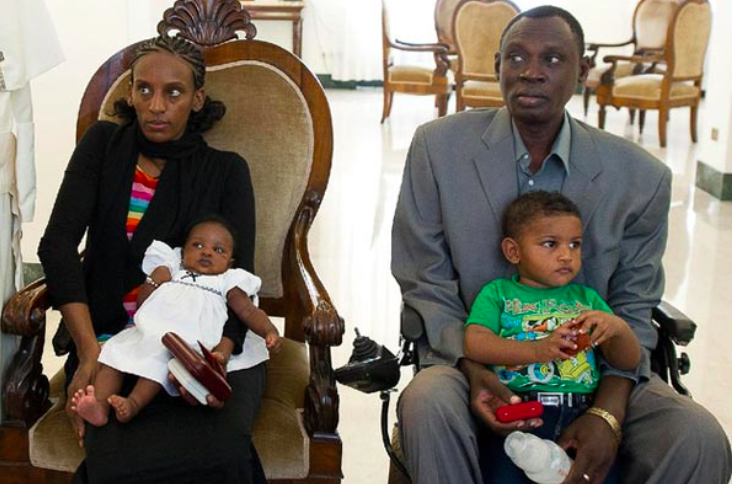
Plans to make "I Am A Christian," a film highlighting the story of Christian mother Meriam Ibrahim, who underwent severe persecution in a Sudanese prison, have been cancelled after Ibrahim and her husband, Daniel Wani, refused to support the production.
On Wednesday, Christian Lives Matter, the company behind "I Am A Christian," cancelled a $500,000 campaign on Indiegogo that was launched to crowdfund the film. A promotional video for the film, which would have starred Stacey Dash, Rachel Hendrix, Ben Davies and Kevin Sorbo, is no longer available, and images related to the movie campaign have also been removed.
"We have decided to suspend the campaign, both because of the family's request and honestly because it never picked up steam like we thought it would," reads a statement attributed to producers of "I Am A Christian," according to a public post on Kevin Sorbo's Facebook page.
"We had hoped that this would be an Oscar worthy role for Stacey, and the first film in a long and loved series for Rachel, Ben, and Kevin. Obviously we as producers also wanted a hit, but we really did want something great for all of you too."
The decision to scrap "I Am A Christian" was made after Ibrahim and Wani refused to support its creation, insisting Christian Lives Matter was "taking advantage" of them.
According to an earlier report from Christian Today, Wani said they had been contacted last year by the film's promoters but had rejected their approach because they had accepted another from a different film company. Additionally, Ibrahim said she was disappointed that the film was being made without their permission, and that knowledge "made her feel like she did when she was sentenced to death in Sudan." The report states that Ibrahim expressed confusion that Christian filmmakers would not be on her side, and accused them of "killing me and killing my dream."
In a later interview with the Christian Post, Wani also expressed concern about filmmakers attempting to tell his family's story based on media reports and without his and Ibrahim's first-person accounts. He echoed his wife's sentiments in stating that he was "not happy" with how the filmmakers went ahead with the movie without his permission, and stated that he found their behavior "very offensive.
However, Wani said he does not plan to take legal action, because "I don't want to make it like a fight. ... I want it to finish peacefully." He added that his wife feels "awful" about the project, and said, "We're sick and tired of everyone using our name(s)."
Last year, brahim's case received international attention after she was sentenced to death by hanging for refusing to renounce her Christian faith and convert to Islam. During her time in prison, Ibrahim gave birth to a baby girl, who she named Maya.
The young mother was charged with apostasy for converting to Christianity because her father, who abandoned her as a child, was a Muslim. She was also charged with adultery because she married Wani, a Christian man, which is considered invalid under Sharia law. Ibrahim insisted that she had been a Christian since she was a young girl, however, and refused to recant her faith, stating "I am a Christian, and I have never been a Muslim." After many months, Sudanese government heeded the outcry of the international community who called for Ibrahim's release.
According to the earlier press release for "I Am A Christian," 40 percent of the film's gross earnings would have been donated to "Judeo/Christian charities working to fight religious persecution worldwide," and 10 percent would have been given to Ibrahim and her family "to provide life and hope for their future."
However, Dennis Baker, Ibrahim and Wani's manager, said the couple's disapproval of the film has nothing to do with money, but stems entirely from the fact that they weren't consulted about its creation.
"[The filmmakers] kept saying it's based on her story, but then they also said, 'Well, we're making a fictionalized version," Baker told the AFP. "Either way, it was totally unbeknownst to Mariam and it was very frustrating and it upset her, because it just isn't fair that someone would go ahead and make a story about her life when 75 percent of her story is still in her head, in her mind. She hasn't shared it all. She's only shared bits and pieces and if they make a story based on just the little bits and pieces that's out there in the media, they're touching the tip of the iceberg of the story. Then to feel like they can confidently go out there and make a story about her and share her passion and courage and heartache and all the things that she went through, it just doesn't make any sense. That's why she was upset about that. That's really all there was to it."














